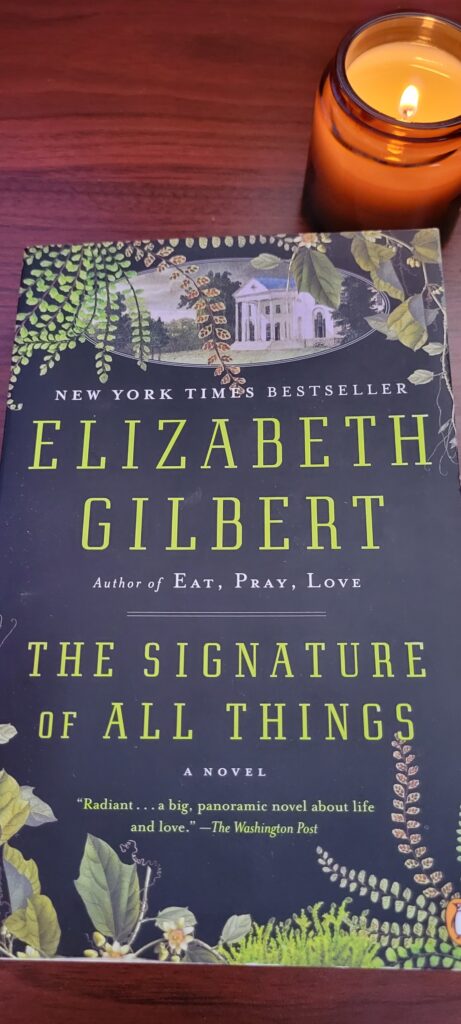Before beginning this post, I searched the house for my copy of Eat, Pray, Love. I thought it would be interesting to compare the writing style between the books, since I thought I remembered that Gilbert sounds like a more serious Mindy Kaling in the former (have you read Is Everyone Hanging Out Without Me? Pure candy, but the honesty prevents the sugar hangover), but transforms into something close to Dickens in The Signature of All Things. I was also thinking perhaps one reason why we love certain authors is because we know what to expect from them. That’s exactly why I recently drove through all of the Fredrick Bachman books. I love his settings (Sweden!), his characters, and his conflicts, but as I got toward the end of the series, I had a horrifying realization. One that has nothing to do with Bachman’s craft or talent—I was starting to get bored! So sad. The fact is readers want BOTH. We want to find the comfortably familiar within the pages, but we also want to be surprised. So frustrating.
But getting back to the missing book…if you’re wondering, it’s gone. I’m realizing now that I gave it away. Book-giving is, in fact, my go-to present—much better than a brand-new book, since it’s already all marked up! Anyway, I’ll have to buy or borrow another one to be sure, but it really seems like Gilbert departed drastically from her usual style in this book. So much so that I was frustrated at first. I was hoping for another globe-hopping, guilt-free mouth-stuffing, transcendent story that would make me feel good about my life, and instead, I was faced with a book about plants. If you’re patient, however, (and thankfully I can be at times, despite evidence to the contrary), you’ll find 16th-century pirates as well, along with a stark account of colonialism, a botanist who literally goes to the ends of the earth to collect species from almost all of the continents (he missed Antarctica, but we’ll forgive him, that one), a love story, and a woman botanist named Alma who would quietly challenge the greatest evolutionary thinkers of her time. By the time I finished the book, Dickens had fallen away, and I recognized the Gilbert who wrote Eat, Pray, Love as the same writer who created Alma, a character who also longs to understand the world, this life, and the mysteries beyond.
And can we pause a moment on the monumental task that must have been the research for this novel? Wow. If you like to read fiction to learn about the past and glimpse the humanity behind historical events, then here you go. But again, you must be patient. Alma will explain everything.
Use this link to find this book in your local indie bookstore (our book-buying choices matter!)
